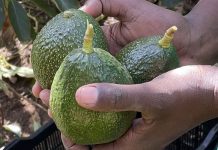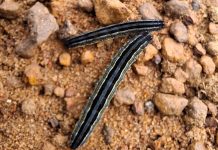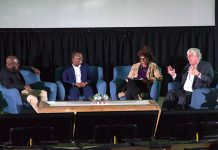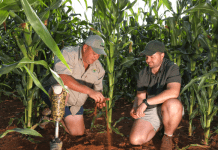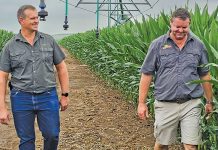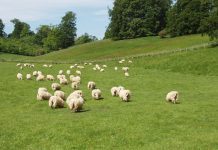He said the National Council of Provinces (NCOP) recently completed its third visit to farms in the province in less than a year. “Farmers are becoming irate with politicians who appear to be targeting the Western Cape with visits which are not contributing to the advancement of agricultural issues,” he said in a discussion document. Van Rensburg suggested that politicians were embarking on “witch hunt visits to the Western Cape agricultural sector” adding that the frequent visits and labour inspections were politically motivated and aimed at tarnishing the image of the agriculture sector in the province.
In addition, they were eroding investor confidence. Farmers’ organisation Agri Wes-Cape agreed with Van Rensburg to a certain extent, saying that labour inspections and farm visits in the province seem to have increased in the last year, both by politicians and by labour inspectors. The organisation, however, did not want to comment on whether these visits were politically motivated.
According to Van Rensburg, farm visits were conducted by the NCOP in September 2011, April 2012 and June 2012 and parliament’s Portfolio Committee on Labour visited farms in the Paarl area at the end of 2011. The NCOP could only confirm the June farm visit. Charl de Beer, NCOP member for the Northern Cape and chairperson of the NCOP Select Committee on Finance, who was part of the NCOP delegation that conducted oversight visits on farms in the Western Cape in June, told Farmer’s Weekly there was nothing sinister or political behind the visit.
He said that Van Rensburg’s opinion on the matter only served to show how ignorant he was of the way in which the NCOP functioned. “In the NCOP we have a provincial follow-up visit policy to determine progress. Private sector involvement in Namibia’s Meatco will be heavily curtailed with the government obtaining a “golden share” in the country’s largest meat processor and a veto right on trade-related aspects.
The cabinet decision, which was officially announced to stakeholders in late June, has been heavily criticised by commercial farmers. Meatco members will call a special general meeting to discuss the way forward. Agriculture minister John Mutorwa announced government’s decision to split Meatco into a co-operative and a meat trading company. The government would get a 30% “golden share” in Meatco, with 70% shareholding for farming members through the co-operative.
The “golden share” includes special decision making rights which were not specified. The government will also have a veto right in the newly established meat trading company. Another important change is that the board of Meatco will consist of commercial and communal farmers from the 13 regions. The decisions disregard the recommendations of a working group consisting of industry stakeholders, including communal and emerging farmers and their unions.
Mutorwa said that business at Meatco would continue as usual until the new laws are passed. He cautioned the co-operative not to appoint a new permanent CEO after the departure of current CEO Kobus du Plessis, who will resign at the end of his term. Under the proposed system, producers who deliver more animals to the abattoirs will be paid a premium. The government is concerned about the economic emancipation of communal farmers.
Meanwhile, Meatco has said a 50-50 quota split imposed by government with much smaller BEE owned abattoir Witvlei has hurt its exports to Norway. Revenues from Norway have dropped by R3,5 million since the quota split, Meatco announced in its annual report.


